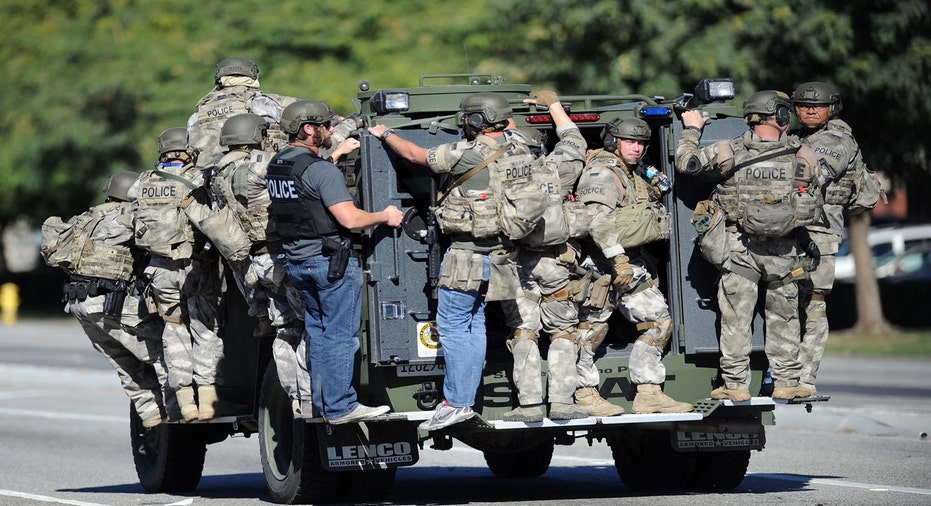Eying the Economic Impact of Terrorism

Terrorism, regardless of how investigators ultimately define Wednesday’s massacre in San Bernardino, Calif., has seared itself into the American consciousness and its economic impact could be widespread.
How widespread remains an open question. Analysts say it depends largely on whether terrorist attacks on U.S. soil and abroad increase in frequency and devastation, and on how the U.S. government responds to those situations.
The reality is that barring another Sept.11, 2001 type of attack that incurs massive numbers of deaths and leaves a visceral and palpable dent in U.S. infrastructure, sporadic acts of violence aren’t likely to have a large impact on the broader U.S. economy.
Despite a recent uptick in global terrorism and seemingly random acts of violence around the U.S., economists and market analysts say they aren’t yet factoring these types of events into their long-range forecasts.
“To date, it has not been something that I have considered, because they have been one-off situations,” said Sam Stovall, U.S. equity strategist at S&P Capital IQ.
“Of course, the increase in government spending for elevated security efforts would probably be offset by the economic benefit from rising employment and materiel spending. That said, it is not something we have quantified,” he added.
As in the Paris attacks last month that left 130 victims dead in a series of coordinated shootings and bombings across the French capital, the sudden outburst of violence that killed 14 in San Bernardino Thursday is expected to have an immediate impact on the local economy.
Pointing to the London subway and bus bombings in 2005 as well as the Madrid train bombings in 2004, analysts have suggested that the economic impact of such events is usually limited and temporary.
In fact, after a short drop off in the number of visitors to London in the summer of 2005, tourism quickly picked up and the number of visitors to the UK rose by 5% from the prior year in the quarter that followed the July attack.
Local and Temporary
The impact of the Madrid attack a year earlier, which killed 191 and left more than 2,000 injured, was also temporary. The Bank of Spain noted in an economic report shortly after the bombing “that the attacks of March 11 have not affected the pattern of growth in any significant manner, and consumer and business confidence seem to have remain unchanged.”
“These events, depending on what they are, whether it’s terrorism or a school shooting, and depending on when it happens -- whether it occurs right before a weekend during a heavy shopping season -- there’s going to be a bit of a contraction,” said Chris Christopher, director of consumer economics for IHS Global Insight.
Christopher said beyond the obvious economic impact of road closings and other travel restrictions that occur in the immediate aftermath of acts of terrorism or random violence, the events can impact consumer sentiment.
But the impact is usually very local, he said.
“It can cause an issue with consumer sentiment, but it’s generally not something that will overwhelmingly cause people to contract their spending. And definitely not the overall community,” he explained.
What’s more, the negative sentiment is usually temporary and it might actually start to fade altogether if the events become more frequent.
Christopher offered up a chilling potential analogy if the frequency of terrorism and random violence in the U.S. continues to escalate. Recalling the residents of war-torn Beirut three decades ago who grew increasingly impervious to the regular bombings and shootings in their city, he said the potential exists that the same sense of resignation could emerge in the U.S.
“The more it happens the more people get used to it, although we’re not even close to that happening,” he said.



















